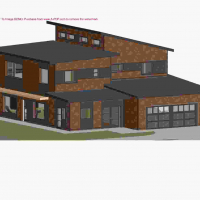Welcome! Here are the website rules, as well as some tips for using this forum.
Need to contact us? Visit https://heatinghelp.com/contact-us/.
Click here to Find a Contractor in your area.
If our community has helped you, please consider making a contribution to support this website. Thanks!
Hydronic Radiant Plates
Options

SENWiEco
Member Posts: 164
I am researching the
effectiveness of radiant plates to use in a hydronic ceiling or wall
panel.
I am specifically interested in the experts opinion on Xlath
radiant ceiling panel systems (Brand X) and ThermoFin heat transfer
plates (Brand Y).
I would like some feed back as to the efficiency of the heat transfer
between the piping and plates, the pipe capture ability of the plates,
the risk of expansion and contraction noises, and finally any
information on the ease of installation.
If there are other products you recommend please advise and say why.
Please contact me privately if you would rather not comment publicly.
Many thanks
S
effectiveness of radiant plates to use in a hydronic ceiling or wall
panel.
I am specifically interested in the experts opinion on Xlath
radiant ceiling panel systems (Brand X) and ThermoFin heat transfer
plates (Brand Y).
I would like some feed back as to the efficiency of the heat transfer
between the piping and plates, the pipe capture ability of the plates,
the risk of expansion and contraction noises, and finally any
information on the ease of installation.
If there are other products you recommend please advise and say why.
Please contact me privately if you would rather not comment publicly.
Many thanks
S
Sean Wiens
0
Comments
-
my expernice
First year with the staple up at this customer's home... a lot of expanison noises... I cranked up the temps to max out the expansion... following season and 12 years later.. no noise.0 -
Staple Up Noisy at low temps
thanks RJB - so you compensated by keeping temps high. That will not be an option on my build where the temps are likely to be very low (sub 90F).Sean Wiens0 -
I've used the following...
I've used extruded aluminum heat transmission plates from below (Radiant Engineering), Roth Panel, which wasn't intended for use on ceilings, but did so successfully anyway, and the lesser Wirsbo light aluminum double plates for radiant walls. They all work well and all have different "fits" as it pertains to the tubing. Noise has not really been an issue with any of them, but I also run outdoor resets on all applications.
The nice thing about the Roth panel is that it comes in a 6" OC configuration which makes it very conducive to low temperature applications. With an ASHP, you will only be seeing temperatures in the range of 115 degrees F. You will need another source of heat to raise the DHW temperatures above the Legionella level. You should maintain the tank at a minimum of 130 degrees F, and then temper down with an ASSE 1017 compliant anti-scald mixing valve.
For control, I use non electric thermostatic operators, and back that up with digital (1 per home) reference thermostat. In all cases, the heat plant shuts down on WWSD at any outdoor temp above 60 degrees F. I know most people think that 65 degrees F is the magic WWSD point, but I have determined that it is actually lower than 60, so am comfortable even at that setting.
Non electric TRV's and an DCECM pump will give you the ultimate in comfort and energy savings. When it comes time to do cooling, you will need to turn the TRV's all the way up, and use a solid state control logic to start and stop the cooling system, and monitor the RH and dew point within your home.
If you have to drill caisons for the foundation, you MIGHT consider putting PEX tubing into the bore hole to take advantage of mother earth's constant stable temperature and decrease your annual energy consumption even more. Although ASHP are a great invention, their efficiency at lower ambient temperatures suffers from the lack of sensible heat.
ME0 -
i only
I only had it cranked up high for the 1st two weeks to get the max expansion and then return the system back to normal with outdoor reset control..0
This discussion has been closed.
Categories
- All Categories
- 87.4K THE MAIN WALL
- 3.3K A-C, Heat Pumps & Refrigeration
- 61 Biomass
- 430 Carbon Monoxide Awareness
- 121 Chimneys & Flues
- 2.1K Domestic Hot Water
- 5.9K Gas Heating
- 115 Geothermal
- 168 Indoor-Air Quality
- 3.8K Oil Heating
- 78 Pipe Deterioration
- 1K Plumbing
- 6.5K Radiant Heating
- 395 Solar
- 15.8K Strictly Steam
- 3.4K Thermostats and Controls
- 56 Water Quality
- 51 Industry Classes
- 50 Job Opportunities
- 18 Recall Announcements
